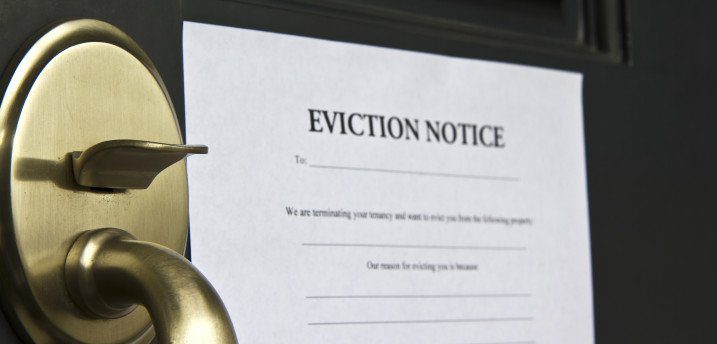Eviction Notices – What do they really mean?
Evictions: What are they really?
As promised, here is the second post about renting in Vancouver. Previously we spoke about rent increases in BC. This post will focus on the touchy topic of eviction. No one, whether you’re a landlord or a tenant, wants to deal with the issues surrounding an eviction. However, sometimes it is inevitable.
What is an Eviction?
Evictions happen when a landlord has to force a tenant out of a property. This must be done in accordance to BC Laws and they must have acceptable reasons under those laws to evict a tenant. Someone can’t be evicted solely because a landlord doesn’t like you.
Are there different types of evictions?
Yes, there are 4 different types of evictions that a landlord can do. Those include:
- A 10-day notice for non-payment of rent or utilities
- One month notice for cause or end of employment
- Landlord’s use of property eviction notices
- 12-month notice to convert a manufactured home park
With those four, this blog post will mainly focus on the first three. If you are curious about the fourth, feel free to contact me or check out Tenant Resource & Advisory Centre.
10 Day notice for non-payment or utilities
For this type of eviction notice, landlords are given the right to evict a tenant that hasn’t paid rent on time. Also, if in the tenancy agreement the tenant is required to pay for utilities and hasn’t within 30 days. Receiving a 10-day notice means the tenant must pay the outstanding balance within five days of the notice or be forced to move out on the 10th day.
A tenant may challenge this notice by applying for a dispute resolution hearing with 5 days of receiving the eviction notice.
Paying the overdue rent/utilities after the five-day window means that the eviction notice still stands. The landlord must cancel the notice. Most often acceptance means they are allowing the tenant to stay for 10 more days and not reinstating their tenancy. Renters should ask for a signed notice from the landlord if they are reinstating the tenancy.
One month notice for Cause
If a landlord has “cause” to evict a tenant this is the type of eviction notice they will send out. Types of “cause” can be found on the Tenant Resource & Advisory Centre website. A few of them include,
- Paying rent late repeatedly
- Causing extraordinary damage
- Assigning sublet without permission
- Jeopardizing the health or safety of another tenant or the landlord
These notices become effective one full month after the date the tenants receives it. When it is received, the tenant then has 10 days to dispute it before it is considered accepted.
Landlord’s use of property eviction notices
There are two types of Use of Property Eviction notices, a two month and a four month.
A tenant may receive a 2-month notice if,
- The landlord wants to move into the unit
- The landlord has “Close family” moving into the unit
- Close family is classified as the landlord’s spouse, parent or children
- The rental unit was sold, and the purchaser wants to move in
- The building is being converted to condominiums
- Tenant no longer qualifies for subsidized rental
A 4-month notice may be received if the landlord plans to
- Demolish the unit
- Mae significant renovations that require the unit to be empty
Approved Eviction Notices
If a landlord finds themselves in any of the situations above, it is up to them to get the required documents. The documents must all be
- In writing
- Signed and dated
- Have the address of the rental unit
- State the effective date of the notice
- Inform the tenant that they can dispute the notice
- Provide contact information for the Residential Tenancy Branch (RTB)
If you’re looking for an even more in-depth understanding of the eviction process, please don’t hesitate to call me, or check out the Tenant Resource & Advisory Centre, where all the information for this blog was sourced.
For more information on real estate market in Vancouver, current trends, buying a home or selling a home, contact Leo Wilk – Your Top Vancouver Realtor.
— Don’t forget to follow Leo Wilk on Facebook | Twitter | Youtube | Instagram


